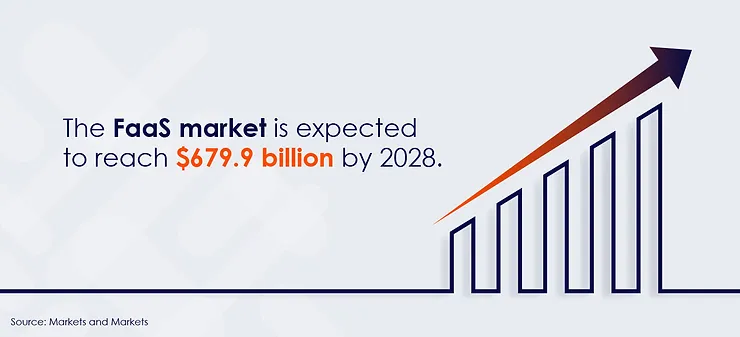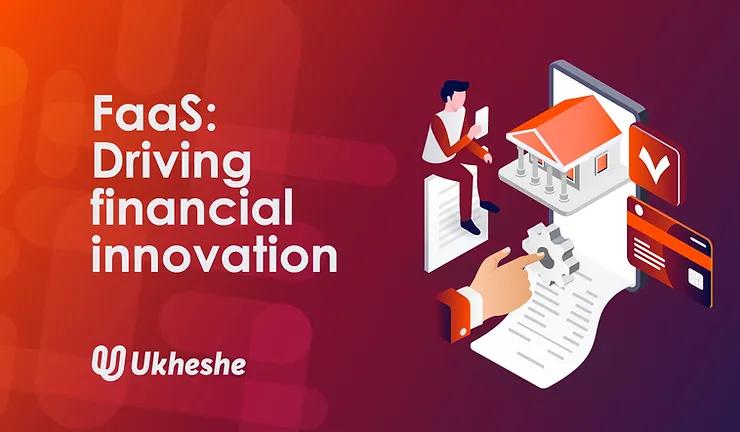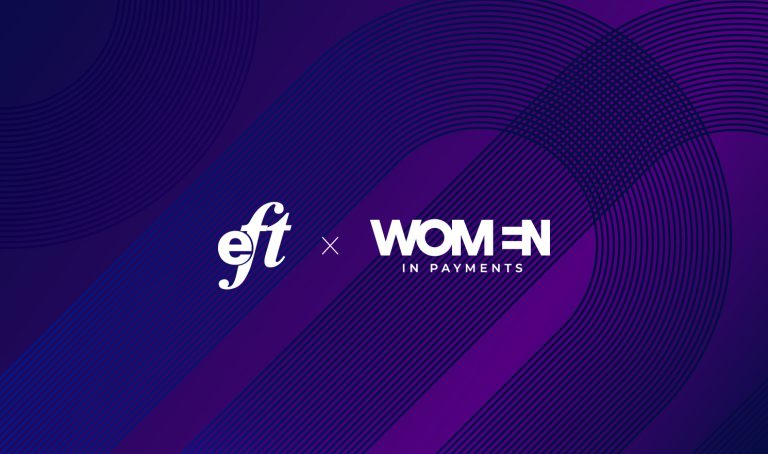Few industries are evolving as rapidly as the financial services sector. Although traditional banks retain a fundamental role, their services are being eclipsed by innovative and disruptive fintechs developing new software, processes, interfaces and new products.
Working together, fintechs, banks and other financial service providers (FSPs) are accelerating the speed of digital transformation in the sector, with banks providing the platforms and market for fintech products and services, resulting in greater operational efficiencies and an improved user experience for their customers.
Understanding Fintech-as-a-Service
FaaS Explained
Instead of businesses needing to create their own complex financial tech tools from scratch, they can simply acquire them from expert providers. This covers a broad spectrum, from managing payments to setting up lending systems. The advantage is that most of these offerings can be easily integrated into a company’s existing setup using tools like APIs or cloud platforms to streamline the whole fintech adoption process.
Fintech as a service (FaaS) is an extension of banking as a service (BaaS). It enables companies to utilise the digital services and products of a third party to increase the range of their offerings at a much lower cost than developing these services in-house. By operating as a strategic outsourcing model for fintech services, FaaS enables companies to adapt to changing market conditions and focus on their core competencies, rather than having to invest significant resources in financial technology systems.
Using the FaaS model, a fintech company develops, maintains and updates a product and ensures compliance with regulatory standards, and the third-party user embeds that technology into their own online platform via an application processing interface (API). With the explosion of contactless transactions and the growth of e-commerce, FaaS is reshaping the traditional financial services ecosystem by providing retailers, app developers and many other non-financial companies with the means to make and receive payments.
As a game changer in the fintech space, the FaaS market is expected to experience a compound growth rate of 16.9%, reaching a value of USD$679.9 billion by 2028.

How FaaS works
Fintech as a Service (FaaS) contrasts traditional fintech models where financial institutions developed costly in-house tech solutions. FaaS lets businesses, from established institutions to startups, access a plethora of fintech services from third-party experts via cloud platforms, APIs, and SaaS. This modular approach cuts costs, hastens time-to-market, and lets companies focus on their strengths while benefiting from fintech expertise.
In more traditional fintech models, financial institutions or businesses would typically develop and maintain their own in-house technology solutions. The downside is that this demands significant investment in terms of time, money, and expertise. On the other hand, FaaS offers a more dynamic, cost-effective, and adaptable model, allowing businesses to leverage the latest in fintech without the hefty upfront investment or rigidity of in-house developments.
Reshaping the financial ecosystem
FaaS is revolutionising the traditional financial landscape. It’s having a profound impact across various financial sectors, from banking to insurance. With FaaS, longstanding financial institutions are able to swiftly adapt, combining the agility of fintech startups with the credibility of established organisations. A notable transformation can be observed in client interactions. Leveraging FaaS, traditional banks are now offering refined digital interfaces that rival those of modern digital-only banks. This enables customers to seamlessly manage accounts, process payments, and handle investments via streamlined mobile apps, all while retaining the trusted security backbone of conventional banking.
FaaS enables so much more than just payment transactions and includes a vast range of fintech products including full-service digital banking, wealth management and lending services, where FaaS demonstrates its agility by applying advanced algorithms to calculate lending eligibility and risk.
The scope of FaaS allows many more companies than just traditional banks to tap into the rich resources that it offers, cherry-picking the services they need and seamlessly incorporating them into their systems as white-label products. This flexible and modular approach enables the adopters of FaaS to focus on their core competencies while leveraging the expertise of FaaS providers.
The benefits of Fintech-as-a-Service
Cost efficiency: Companies adopting third-party FaaS products are relieved of the costs of research and development into products which they can acquire from a fintech, increasing profitability.
Speed to market: Not only is R&D expensive but it is also a lengthy process. Sourcing ready-made FaaS products allows companies to implement change quickly in response to market demand.
Scalability: Institutions can easily scale their fintech capabilities up or down according to demand, without the complexity of building and maintaining their infrastructure. Whether it’s handling increased transaction volumes or expanding into new markets, FaaS offers a flexible and scalable solution to support growth initiatives.
Reduces tech barriers: FaaS provides a bridge to fintech innovation without the need for institutions to become technology experts themselves. This democratization of technology levels the playing field, allowing institutions of varying sizes and resources to harness the latest fintech advancements.
Increased flexibility: FaaS allows companies to be more responsive to market changes and to add services on demand. In a highly evolving sector, this is a critical factor for market differentiation and success.
Improved efficiency: FaaS can be integrated seamlessly into companies’ existing structures and processes, digitising previously manual tasks, representing a time and cost saving.
Better customer experience: User experience is all about innovative e-commerce and banking services that are safe, secure and contactless. Sophisticated technical options attract and retain customers and set a company apart from its competitors.
Challenges
The rapid evolution of technology and its application in companies operating legacy systems that cannot be changed overnight presents some challenges to the adoption of FaaS. Compatibility of systems is imperative to prevent any disruption of services, and so technical capacity can be an issue for some users.
Regulatory and compliance issues vary from region to region and so the functionality of any FaaS product should be adaptable. Cyber security is a massive challenge in all companies and sectors, so robust anti-fraud, and data security measures need to be part of any company’s operation when implementing new fintech products.
Collaboration is key
It is impossible for companies who are not in the fintech space to comprehend the magnitude of the changes that are happening within the sector. This has led to a very clear separation of roles and functions, leaving traditional banks and startup businesses almost dependent on those fintech companies that are monitoring market changes and responding to and anticipating demand.
Collaboration between fintechs and financial services providers remains the key to the successful implementation of FaaS which is already changing the financial services landscape.
Empowering innovation with Ukheshe’s FaaS solutions
Ukheshe isn’t just a service provider; we’re collaborative partners in revolutionising financial services. Through our innovative Fintech-as-a-Service (FaaS) model, we offer integrated payment solutions that enable our customers to effortlessly embed financial services into their existing products or applications via APIs. Among the array of payment services available through the Eclipse platform, we offer:
Wallets-as-a-Service: Wallets-as-a-Service within the FaaS ecosystem provide companies with the infrastructure to offer digital wallet solutions to their customers. These digital wallets can include features like mobile payments, peer-to-peer money transfers, and contactless transactions. Implementing Wallet as a Service enables businesses to stay competitive in a rapidly evolving digital payments landscape while avoiding the complexities of developing these technologies in-house.
Payments-as-a-Service: Payments-as-a-Service encompasses various payment methods, including online, mobile, and point-of-sale (POS) payments. Ukheshe offers the necessary infrastructure and APIs. Our suite of payment services including acquiring, Tap on POS, and Mobile POS, empowers our customers to offer a range of payment options through their own offering.
Card-as-a-Service: Eclipse Card-as-a-Service simplifies the issuance and management of payment cards, including credit, debit, and prepaid cards. Ukheshe offers the technology stack that businesses can leverage to launch co-branded or customised payment cards quickly. It streamlines card management, reduces overhead costs, and enhances cardholder experiences.
Digital Onboarding-as-a-Service (eKYC): Simplify the onboarding process with our e-KYC solution, enabling swift and secure customer verification, and reducing onboarding timeframes.
VAS Vending: Enhance your service offering with our VAS vending capabilities, providing your customers with additional value and convenience.
With Ukheshe’s FaaS model and the Eclipse platform, we’re not just offering services; we’re providing solutions that address key challenges in financial services. From reducing integration complexities to enhancing customer experiences, Ukheshe is your dedicated partner in driving financial innovation.





